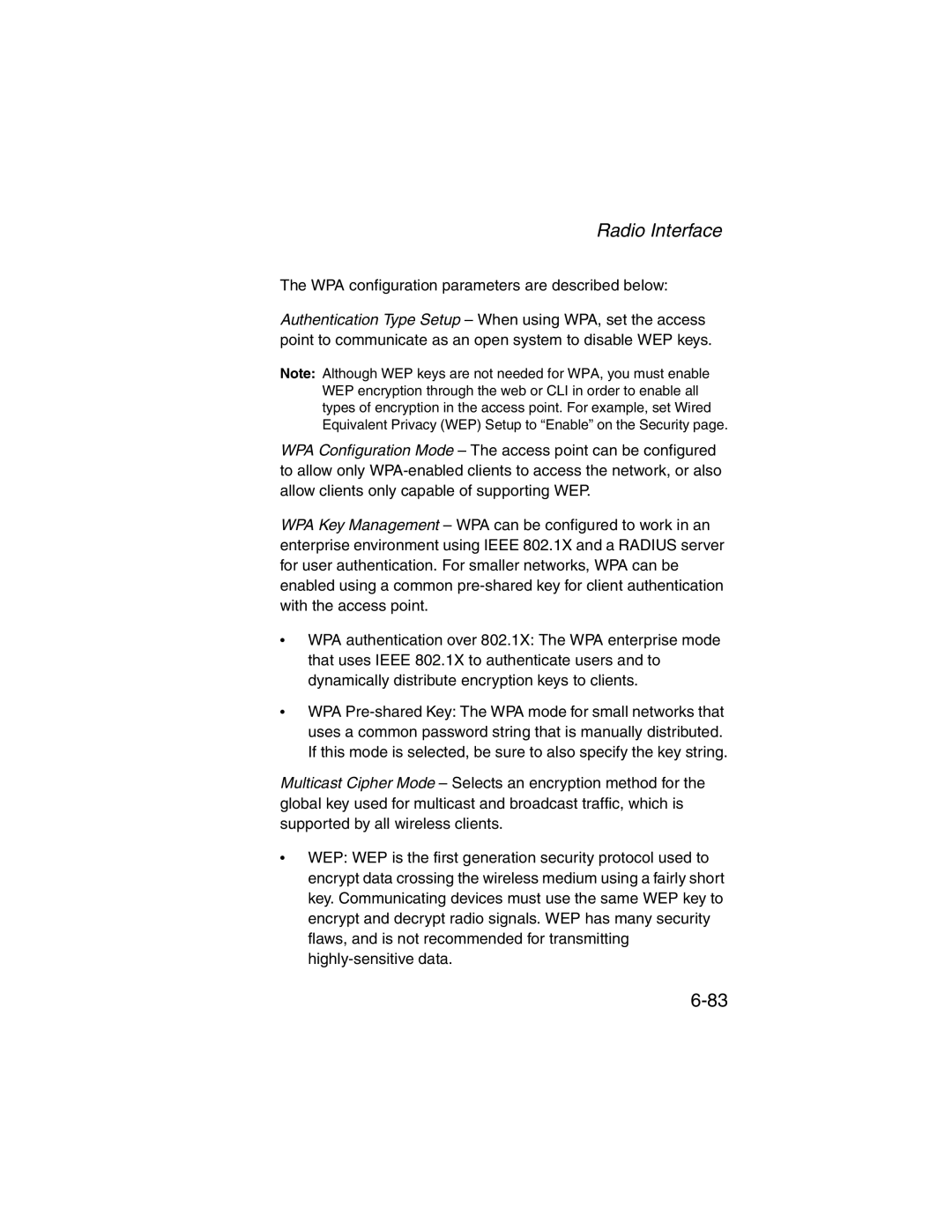Radio Interface
The WPA configuration parameters are described below:
Authentication Type Setup – When using WPA, set the access point to communicate as an open system to disable WEP keys.
Note: Although WEP keys are not needed for WPA, you must enable WEP encryption through the web or CLI in order to enable all types of encryption in the access point. For example, set Wired Equivalent Privacy (WEP) Setup to “Enable” on the Security page.
WPA Configuration Mode – The access point can be configured to allow only
WPA Key Management – WPA can be configured to work in an enterprise environment using IEEE 802.1X and a RADIUS server for user authentication. For smaller networks, WPA can be enabled using a common
•WPA authentication over 802.1X: The WPA enterprise mode that uses IEEE 802.1X to authenticate users and to dynamically distribute encryption keys to clients.
•WPA
Multicast Cipher Mode – Selects an encryption method for the global key used for multicast and broadcast traffic, which is supported by all wireless clients.
•WEP: WEP is the first generation security protocol used to encrypt data crossing the wireless medium using a fairly short key. Communicating devices must use the same WEP key to encrypt and decrypt radio signals. WEP has many security flaws, and is not recommended for transmitting
